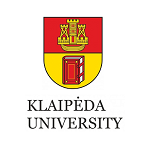CAREER DECISION MAKING PROCESS OF THE 8TH GRADERS WITHIN THE REFORM PROCESSES IN LATVIA
Last modified: 31.01.2020
Abstract
The present study investigates the career choice of 8th graders in the context of reform processes in Latvia and changing demands of the job market. Career planning in this article is seen as a spiralling and dialectic process that is influenced by multiple factors, the process that involves planning, generating options, evaluation of options and making decisions. Reform processes in Latvia requires career counsellors to help young people to maintain an attitude of acceptance while choosing a career path, and in addition to develop meaningful and professional life changing discussion on available career options in order to become significant adviser while guiding pupils on adapting to changing requirements of a job market. The aim of the study is to explore the main influences determining the career choice of the 8th grade pupils as well as to explore the sources of information that determine them on making such decisions. Research methodology: For the purpose of this study the authors chose a pilot questionnaire in order to explore the career path of the 8th graders. The study draws on tendencies of youngsters’ choice of a career obtained in Latvia and Czech Republic. Research findings: Considering the changing demands of a job market, the teachers need to consider an adaptive career managing processes for the youngsters by taking into account a dialectic interplay of multiple influences on pupils’ career choice and to foster a more sustainable career path in helping pupils to gain career maturity in decision making and developing competencies needed for the future.
Keywords
References
Brigmane, B. (2014). Pieaugušo pašpieredzes veidošanās mācīšanās procesā. (Developing adults’ self experience in the learning process). Promocijas darbs. Doctoral disseration. Rīga: RPIVA.
Flum, H., & Blustein, D. I. (2000). Reinvigorating the study of vocational exploration: A framework for research. Journal of Vocational Behaviour, 56, 380–404.
Hlaďo, P. (2012). The role of the significant others in the transition of Czech pupils between the lower and upper secondary school. International Conference on New Horizons in Education, 55, 308–316.
Jaunzeme, I. (2014). Karjeras attīstības atbalsta sistēmas darbības izvērtējums Latvijā. Pētījums. (Evaluation of the carrer support system in Latvia. Research.). Rīga: VIAA.
Krieshok, T.S., Black, M.D., & McKay, R.A. (2009). Career decision making: The limits of rationality and abundance of non-conscious processes. Journal of Vocational Behaviour, 75, 275–290.
Marcus, P. (2017). The psychoanalysis of career choice, job performance, and satisfaction. How to flourish in the workplace. London and New York: Routledge
OECD (2003). Key competencies for a successful life and well-functioning society. The definition and selection of key competencies: Executive summary. Göttingen: Hogrefe and Huber Publishers. Retrieved from: www.oecd.org/dataoecd/47/61/35070367.pdf.
Oomen, A., & Plant, P. (2014). Early School Leaving and Lifelong Guidance. Jyväskylä: University of Jyväskylä – Finnish Institute for Educational Reserch. Retrieved from: http://www.elgpn.eu/publications.
Rychen, D. S. (2003). Key competencies: Meeting important challenges in life. In D.S. Rychen, & L.H. Salganik (Eds.), Key competencies for a successful life and a well-functioning society (pp. 63–107). Göttingen: Hogrefe & Huber Publishers.
Salovey, P., & Mayer, J.D. (1990). Emotional Intelligence. Imagination, Cognition, and Personality, 9, 185–211.
Starr, M. F. (2000). How early is too Early to Begin Life Career Planning? The Importance of the Elementary School Years. Journal of Carer Development, 27(2), 89–102.
Super, D.E., & Crites, J.O. (1966). Vocational development. New York: Columbia University.
Super, D.E., & Knasel, E.G. (1996). Career Development in adulthood: Some theorethical problems and possible solutions. British Journal of Guidance and Counceling, 9, 194–201.
Vygotsky, L. (1978). Mind in society. The development of higher psychological processes. Cambridge, MA: Harvard University Press.








